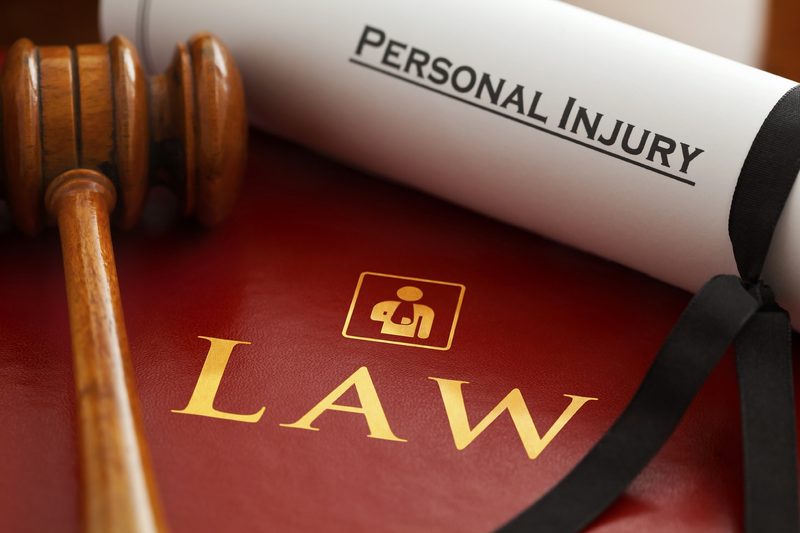We are the experts for all cases

Personal Injury
Personal Injury
Personal injury law is a significant branch of civil law that deals with legal disputes arising when a person suffers harm due to the negligence, recklessness, or intentional actions of another party. Unlike criminal law, which seeks to punish offenders, personal injury law focuses on providing compensation to the injured person for the damages they have suffered. It serves both as a remedy for victims and as a system that promotes accountability and safer conduct in society.
Common cases under personal injury law include motor vehicle accidents, workplace injuries, slip-and-fall incidents, medical malpractice, defective products, and wrongful death. In each situation, the injured party, known as the plaintiff, must prove that the defendant owed a duty of care, breached that duty, and directly caused the injury. If these elements are established, the plaintiff becomes entitled to compensation.
The types of compensation available vary depending on the severity of the injury. They may include medical expenses, lost wages, property damage, rehabilitation costs, emotional distress, and compensation for pain and suffering. In cases of permanent disability or death, long-term financial support or wrongful death claims can also be pursued.
Personal injury law emphasizes fairness and justice. It ensures that victims are not left to carry the financial and emotional burden caused by another’s misconduct. At the same time, it motivates individuals, businesses, and institutions to act responsibly and uphold safety standards.
Because personal injury cases can be complex, skilled legal representation is vital. Lawyers specializing in this field gather evidence, consult experts, negotiate settlements, and, if necessary, advocate in court. In essence, personal injury law provides a crucial legal pathway for restoring balance and protecting the rights of those who have been wrongfully harmed.

Industrial Injury
Industrial Injury
Industrial injury law is a specialized area of legal practice that focuses on protecting workers who are injured, disabled, or made ill as a result of accidents or unsafe conditions in the workplace. With industries involving heavy machinery, chemicals, construction, and manufacturing, the risk of workplace accidents is often high. Industrial injury law provides a framework through which employees can claim compensation, medical support, and other benefits when harmed during the course of their employment.
The main objective of industrial injury law is to ensure fairness by holding employers accountable for providing a safe working environment. Employers are legally bound to follow health and safety regulations, offer proper training, and maintain machinery to prevent hazards. When these duties are neglected, injured workers may pursue claims for medical expenses, loss of wages, rehabilitation, disability benefits, or, in severe cases, long-term financial support.
This branch of law not only helps injured employees recover from physical and financial losses but also promotes workplace safety by compelling employers to maintain higher standards. Industrial injury cases can be complex, involving evidence of negligence, safety inspections, and expert testimonies. For this reason, legal guidance plays a vital role in ensuring justice and protecting the rights of workers.

Insurance Claims
Insurance Claims
Insurance claim law is a vital area of legal practice that governs the relationship between policyholders and insurance companies. When individuals or businesses purchase insurance, they enter into a contract where the insurer promises to provide financial protection against specific risks, such as accidents, illness, property damage, or death. Insurance claim law ensures that when a valid claim arises, the rights of the insured are protected, and the insurance company fulfills its obligations fairly.
Disputes often occur when insurers delay, reduce, or deny claims. In such cases, insurance claim law provides remedies to policyholders who may be facing financial hardship due to medical bills, loss of income, or property loss. Legal intervention may involve reviewing the policy terms, examining the cause of loss, and challenging unjust decisions by the insurance company. Courts or regulatory bodies can require insurers to honor claims and, in some cases, award additional damages for bad faith practices.
This branch of law plays an essential role in maintaining trust in the insurance industry. It ensures fairness, prevents exploitation, and provides relief to individuals during times of need. Skilled legal assistance is often crucial, as lawyers can interpret complex policy language and advocate effectively for the insured’s rightful compensation.

Automobile Accidents
Automobile Accidents
Automobile accident law is a branch of personal injury law that deals with legal claims arising from road accidents involving cars, motorcycles, trucks, or other vehicles. These laws are designed to protect the rights of individuals who suffer injury, property damage, or loss of life as a result of negligent or reckless driving. The goal is to ensure that victims receive fair compensation and that responsible parties are held accountable.
In most automobile accident cases, liability is based on negligence. A driver may be considered negligent if they fail to follow traffic rules, drive under the influence, use a mobile phone while driving, or operate a vehicle carelessly. To succeed in a claim, the injured party must prove that the other driver owed a duty of care, breached that duty, and caused the accident that led to damages.
Compensation in automobile accident cases can cover medical expenses, repair or replacement of vehicles, lost income, rehabilitation costs, and compensation for pain, suffering, or permanent disability. In fatal accidents, family members may also file wrongful death claims.
Because accident cases often involve insurance companies, legal guidance is crucial. Lawyers play a key role in negotiating settlements, collecting evidence, and representing clients in court to secure rightful compensation.

Criminal Defence
Criminal Defense
Criminal defence law is a fundamental branch of legal practice that focuses on protecting the rights of individuals accused of committing crimes. It ensures that every person, regardless of the charge, receives a fair trial and proper legal representation. This area of law is rooted in the principle that an accused person is innocent until proven guilty, and the burden of proof lies with the prosecution.
Criminal defence law covers a wide range of cases, including theft, fraud, assault, drug-related offences, white-collar crimes, and more serious charges such as murder. Defence lawyers play a vital role by examining evidence, cross-examining witnesses, and challenging the prosecution’s arguments. They also advise clients on their rights, negotiate plea deals when appropriate, and build strategies to achieve the best possible outcome.
The primary objective of criminal defence law is not only to defend the accused but also to maintain the balance of justice. It prevents wrongful convictions and ensures that punishments are imposed only when guilt is proven beyond reasonable doubt. Skilled defence lawyers safeguard constitutional rights, such as the right to remain silent and the right to legal counsel. Ultimately, criminal defence law strengthens public confidence in the justice system by upholding fairness and protecting individual liberties.

Elder Law
Elder Law
Elder law in Bangladesh is an important area of legal practice that focuses on the rights, protection, and welfare of senior citizens. With a growing elderly population, issues related to health care, financial security, property rights, and social dignity are becoming increasingly significant. Elder law ensures that older individuals receive legal safeguards against neglect, abuse, and exploitation, while also protecting their access to justice and basic human rights.
In Bangladesh, several laws and policies address the needs of elderly citizens. The Parents Maintenance Act 2013 legally obliges children to provide financial support and care for their aging parents. Additionally, government initiatives such as old-age allowances, pension schemes, and social safety programs aim to reduce poverty and vulnerability among the elderly. However, challenges remain in ensuring proper enforcement and widespread awareness of these rights.
Elder law also covers issues such as inheritance, guardianship, medical consent, and the management of property or assets. Many seniors face legal disputes regarding land or family property, making access to legal assistance vital.
By strengthening elder law, Bangladesh can promote respect, dignity, and security for its senior citizens. Expanding legal awareness, improving social support systems, and ensuring strict enforcement of protections are key to safeguarding the rights of the elderly in society.